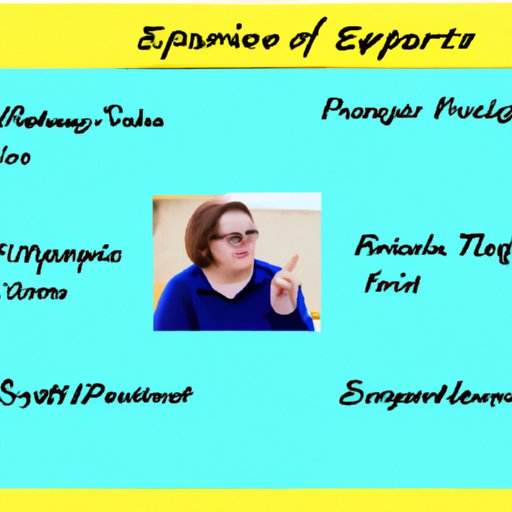Introduction
Special education teachers play an important role in helping students with learning disabilities reach their full potential. It is a challenging job that requires dedication and patience, but it can be incredibly rewarding. This article will explore what it takes to become a successful special education teacher.
Definition of Special Education
Special education, also known as special needs education, is designed to meet the individual needs of students with physical, mental, emotional, or behavioral disabilities. Students with learning disabilities may require alternative teaching methods, accommodations, and/or modifications to be successful in school.
Overview of Challenges for Special Education Teachers
Special education teachers face many challenges when working with students with disabilities. They must be knowledgeable about different types of disabilities, understand how to adapt lessons for different learning levels, and have the patience and compassion to work with students who may struggle more than others. Additionally, they must be aware of laws and regulations regarding special education, be able to develop and implement Individualized Education Plans (IEPs), and possess strong communication skills.

Understand the Needs of Special Education Students
To be successful as a special education teacher, it is essential to understand the unique needs of each student. The first step is to get to know your students and learn about their individual strengths and weaknesses. Once you have established a relationship with your students, it is important to familiarize yourself with the different types of disabilities and the various learning styles. This will enable you to better identify the best strategies for teaching each student.

Become Familiar With Different Teaching Strategies
Special education teachers must be skilled at adapting lessons to different learning levels. It is important to utilize a variety of teaching methods to engage students and help them retain information. Incorporating technology into the classroom is also beneficial, as it can provide a fun and interactive way for students to learn. Additionally, it is important to use positive reinforcement and celebrate successes, no matter how small.
Learn How to Develop and Implement an Individualized Education Plan (IEP)
An IEP is a document that outlines the educational goals and objectives for a student with a disability. It is important for special education teachers to understand the IEP process and create individualized plans for each student. This includes setting appropriate goals that are tailored to the student’s individual needs and abilities. Additionally, it is important to monitor progress and make adjustments to the plan as needed.
Develop Good Communication Skills
Good communication is essential for special education teachers. Establishing positive relationships with students is key, as is communicating effectively with parents and school staff. Additionally, it is important to collaborate with other professionals, such as speech therapists, occupational therapists, and psychologists, to ensure that the student is receiving the best possible care.
Possess Patience and Compassion
Working with students with disabilities can be challenging, so it is important to be patient and understanding. Every student is unique and has different needs, so it is important to recognize this and adjust your teaching style accordingly. Celebrating successes, no matter how small, is also important, as it helps build confidence and motivation.
Stay Informed of New Regulations and Laws
It is important for special education teachers to stay up-to-date with any changes in legislation regarding special education. This includes following best practices and participating in professional development opportunities. Additionally, it is important to be aware of any new technologies or resources that may be helpful for students with disabilities.

Utilize Assistive Technology and Resources
Assistive technology can be used to help students with disabilities access the same curriculum as their peers. Special education teachers should research available options and identify appropriate resources that can be used in the classroom. Additionally, incorporating technology into the classroom can be a great way to engage students and make learning fun.
Conclusion
Becoming a successful special education teacher requires knowledge of the unique needs of students with learning disabilities, as well as familiarity with teaching strategies, the IEP process, communication skills, and assistive technology. It is a challenging job, but it can be incredibly rewarding. With dedication and patience, special education teachers can make a positive difference in the lives of their students.
(Note: Is this article not meeting your expectations? Do you have knowledge or insights to share? Unlock new opportunities and expand your reach by joining our authors team. Click Registration to join us and share your expertise with our readers.)
